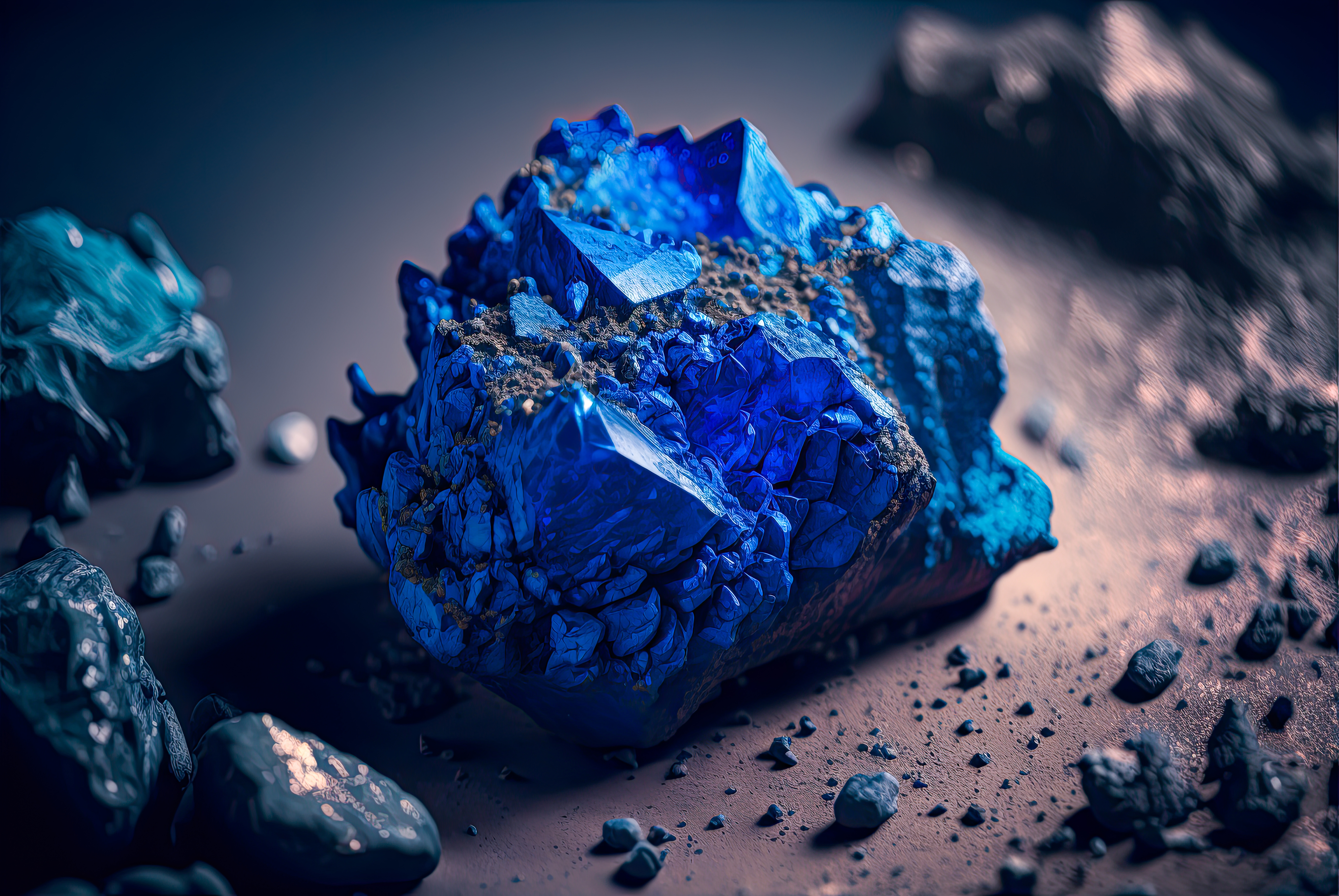
The latest IOE&IT Daily Update focus on global commodities looks at another critical mineral: cobalt.
Cobalt is another of the metals seen as crucial for the “green transition”, as well as the future of the digital economy.
The metal is resilient, capable of being magnetised and very stable.
It can be combined into special alloys or superalloys for a variety of different uses, including seals, magnets and pigment for dyes.
More importantly, it is a key part of batteries for both electronic vehicles (EV) and other goods such as laptops and mobile phones.
Almost all modern electronics in use today rely on cobalt. Without this metal, our modern digital economy would struggle to function.
Geopolitics
It is this importance to modern technology that prompted an initial rush to invest in cobalt.
Roger Marshall, trade and customs specialist at the Institute of Export & International Trade (IOE&IT) and an expert in critical minerals, explains how markets and countries have looked at the metal recently.
“A few years ago, when we looked at the supply and demand of cobalt, there was a huge discrepancy between what we had and what we needed.
“There was a huge explosion of interest in cobalt and prices went up. Now, the gap is starting to close.”
Currently, China dominates the global supply of processed cobalt and is “central to the equation” according to Marshall.
“However, the added twist is that the main source of supply is the Democratic Republic of Congo (DRC).”
Dominant suppliers
As much as 70% of the world’s supply of cobalt comes from the DRC, according to the US Interior Department.
Indonesia recently became the second leading supplier of the ore, but the central African nation remains by far the single largest source.
“It’s not a very stable country,” Marshall says, referencing multiple wars that have claimed millions of lives across several decades and caused widespread political instability.
“Cobalt isn’t that scarce of a material when you look at it, but the quality of the ore that is produced in the DRC is so much richer than that found in Indonesia, Turkey or Russia.”
The process of extracting cobalt can be a “nasty” one, resulting in toxic chemical by-products that cause localised pollution.
Mining operations range from larger scale, professionalised operations run by multinational corporations to smaller-scale ‘artisanal’ miners.
Artisans
In spite of their friendly sounding name, an artisanal miner often means a single individual working in very dangerous conditions.
“It’s a lot of normal people doing it,” says Marshall. “You set off with a spade and start digging a hole, then extract it by just going and washing the sediments off in the local water supply.”
A 2016 report by Amnesty International highlighted the human rights abuses and the use of child labour in this kind of mining.
The 2023 documentary ‘Cobalt Rush’, featuring professors from the University of Bath in the UK and Catholic University of Bukavu in the Congo, looked at the day-to-day experience of smaller miners and dangers they regularly face.
Mining companies have stressed that they want to tackle the poor and dangerous conditions.
Some want to remove artisanal mining completely from the global supply chain.
Others, such as the Fair Cobalt Alliance, an initiative that includes mining company Glencore, Tesla and ethical tele-comms company Fairphone, want to improve it by professionalising the industry.
Tracking the extent to which companies are facing up to their commitments is difficult, says Marshall.
“Dealing with these accusations is difficult. Companies say they’re sourcing the products ethically, but who is going to the Congo to verify this.
“Some of the operators are aware of their responsibilities, but it’s a bit of mixed bag.”
Race for cobalt
Countries are now getting into the race to refine cobalt into something more usable and reduce reliance on both China and the DRC.
As the Economist Intelligence Unit notes, China is the largest producer of 30 out of 50 of minerals that are regarded as critical to the US economy.
Countries as diverse as Morocco, Indonesia and Australia are starting to open domestic processing facilities. The DRC is also seeking to process more of the ore it extracts.
Deep sea
Another source is deep-sea mining. The seabed is rich in mineral reserves, but extracting them poses enormous risks for the environment, according to Greenpeace.
An international ban on deep-sea mining currently remains in place, and talks held in Jamaica over the future of seabed mining ended inconclusively in late July.
The future
With many of these metals, Marshall explains that the initial rush to acquire the metal and the sky-high prices has led to companies seeking alternatives.
Marshall explains:
“There’s been a lot of effort to try and develop batteries that do not rely on cobalt.
“Tesla recently announced that 50% of their EV batteries are non-cobalt, particularly in their lower cost vehicles. Samsung and Panasonic have done the same.
“It’s a sacrifice that they make in the cheaper models. The performance or range isn’t there, so the really fast stuff still needs cobalt batteries.
“But ultimately, it’s how the market responds. The technology will eventually improve and cobalt might well become yesterday’s metal.”
Marshall says that, at one point, numerous countries were rushing around trying to find the metal in response to spiking prices. Now, this is less clear.
“At one point, the DRC was looking like it could be a major producer of a key metal for years to come.
“But now, since almost 60% of EV batteries are cobalt-free and prices have plummeted, this probably won’t be the case in the future.
“It doesn’t mean that cobalt is out completely – we still need it for a lot of consumer products like phones – but in a few years it might not be the hot commodity it is today.”



